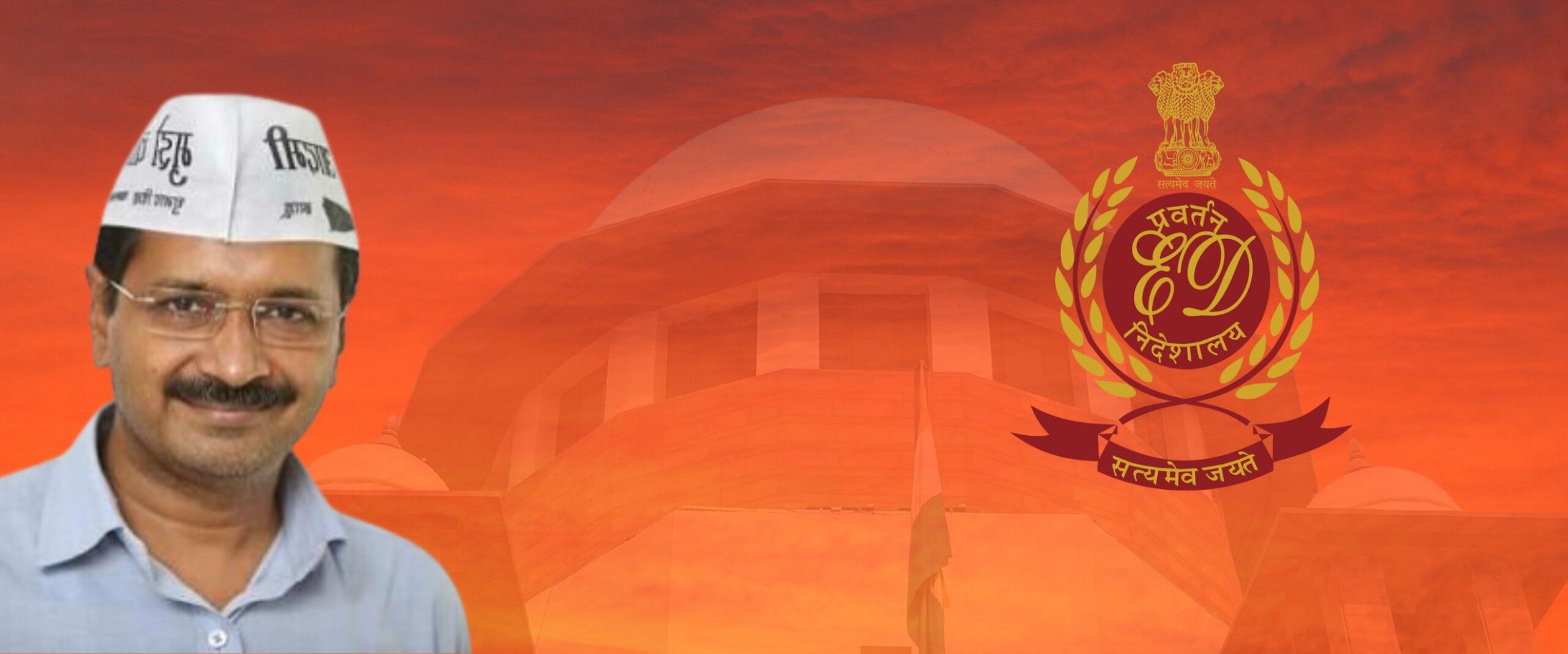Analysis
Supreme Court reserves judgement in Arvind Kejriwal’s plea challenging his arrest
The ED argued that reasonable suspicion of guilt is enough to determine whether a person could be arrested under PMLA

Today, the Supreme Court reserved judgement in Delhi Chief Minister Arvind Kejriwal’s plea challenging his arrest under Section 19 of the Prevention of Money Laundering Act (PMLA). The provision empowers the Enforcement Directorate (ED) to make arrests if, based on the evidence or “material” in their possession, they have “reason to believe” that a person is guilty of an offence under the PMLA.
So far, the Bench of Justices Sanjiv Khanna and Dipankar Datta have heard arguments from Senior Advocate A.M. Singhvi on how the ED erred in arresting Kejriwal by not satisfying the Section 19 conditions, namely, material evidence, reason to believe that Kejriwal was guilty, and communicating the grounds of arrest.
Singhvi asserted that several witnesses were pressured into implicating Kejriwal. He added that the investigative agency disregarded any material evidence that did not mention Kejriwal. Additional Solicitor General S.V. Raju appeared for the ED.
As the verdict on his plea remains pending, Kejriwal is out on interim bail till 2 June 2024. The bail was granted to allow Kejriwal to campaign for the Aam Aadmi Party before the Lok Sabha Elections conclude. In response to Kejriwal’s claims in his rallies that he will not return to prison if AAP is voted into power, Home Minister Amit Shah remarked that the Supreme Court gave Kejriwal “special treatment” in the case.
As the politics played out outside the Court premises, the two-judge Bench heard arguments today, extending the hearings till 5:00 PM—an hour after the Court shuts for work. Incidentally, today was also the last working day before the Supreme Court takes off on its six-week summer break.
Raju: Kejriwal has no facts to support his arguments
Raju repeated his argument from yesterday’s hearings that an investigating officer is not required to look at all material evidence before determining whether an accused should be arrested. He was countering Singhvi’s repeated insistence that the ED disregarded several material evidence and selectively handpicked implicating statements by witnesses.
Raju argued that determining the guilt of an accused under the PMLA framework is different at the arresting and the bail stages. The framework was designed to ensure that all material, irrespective of its relevance, is considered only at the bail stage. At the stage of arrest, any material that shows the involvement of an accused can give reasonable grounds to arrest a person. Earlier, Solicitor General Tushar Mehta had argued that Kejriwal’s interpretation of Section 19 would force an arresting officer to conduct a “mini trial” before arresting a person.
So far, Kejriwal has not made a plea seeking bail. His petition only claims that the arrest was illegal.
Justice Datta pointed out that Raju described prima facie guilt under Section 19 as mere “reasonable suspicion” that one is guilty. He asked how the language of the provision can be read to mean reasonable cause for suspicion when it specifically requires prima facie guilt.
Raju insisted that Kejriwal and his legal team had no case on the basis of facts. He argued that an arrest under Section 19 would be illegal if there was no material or no evidence—the threshold was that simple. He reiterated that it is only at the stage of granting bail that the Court must consider all available material. He reminded the Bench that the Delhi High Court had examined and upheld the arrest before Kejriwal approached the Supreme Court.
Singhvi: Investigating officer should apply his mind while omitting relevant material
In his rejoinder arguments, Singhvi compared statements made by Magunta Reddy, his son Raghav Reddy, and Sarath Reddy which showed that they had no interaction with Kejriwal and other accused persons—Vijay Nair and K. Kavitha. However, the same witnesses (or whatever word you put) later changed their submissions to mention their involvement with Buchi Babu, K. Kavitha, and Vijay Nair. Buchi Babu is the former auditor for K. Kavitha, and a witness in the liquor scam. They were promptly removed from the list of accused persons after this second statement.
Singhvi then claimed that witnesses’ revised statements were recorded by the ED nine months before Kejrwal was arrested. Further, the investigation had been ongoing for the past 18 months—why was Kejriwal arrested now? Justice Khanna stated that the argument on the timing of his arrest need not be discussed at this stage as interim bail had already been granted to Kejriwal.
According to Singhvi, the following should be looked at by an arresting officer to determine the prima facie guilt of the accused under Section 19 of PMLA:
- Application of mind by the arresting officer
- Inclusion of all relevant material by the officer
- Application of mind to be reflected while omitting material
- Conclusion
Raju interjected Singhvi’s rejoinder arguments to point out that the ED had chats from Kejriwal’s WhatsApp on his hawala transactions, a money transfer method outside of a legitimate banking system. Singhvi responded that this was new information that the ED was submitted on the very last day of hearings. “Is this the submission for the Court or the media?”, he asked, adding that these were attempts to throw the Bench off from the key issues with new details.
The Bench reserved judgement and reiterated that Kejriwal had the option to approach a trial court for a bail hearing according to the “procedure established by law.”